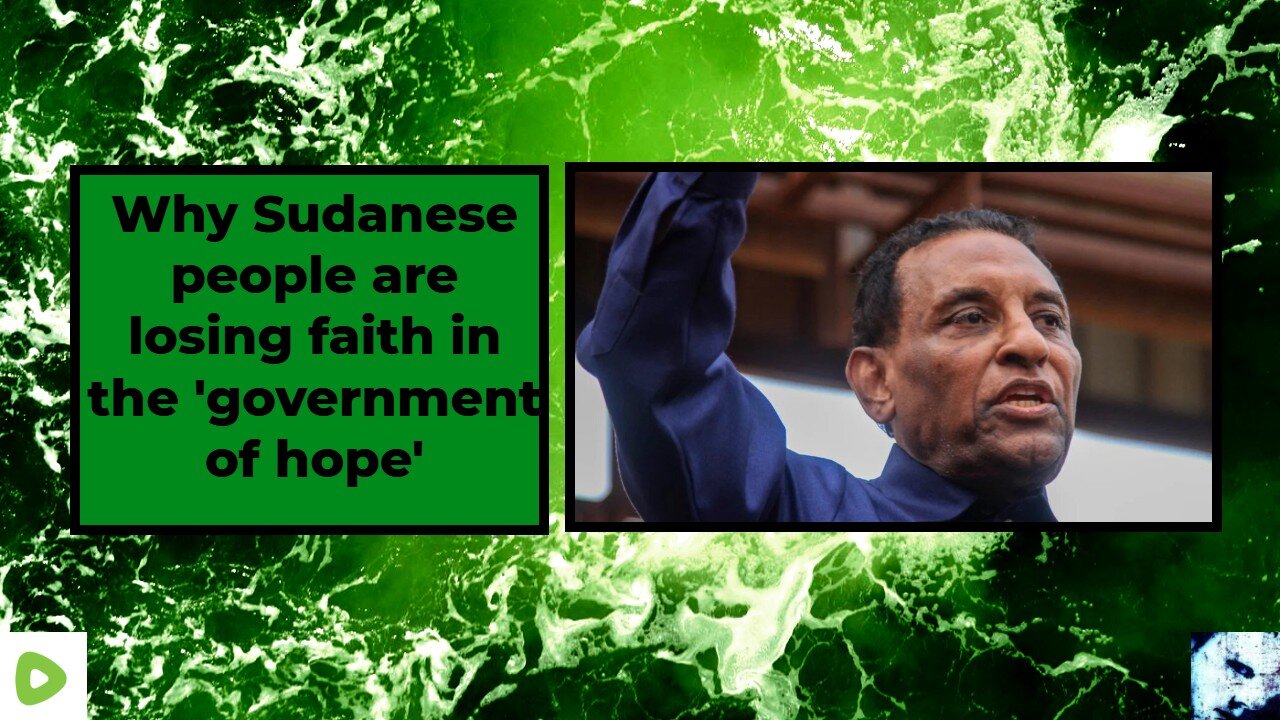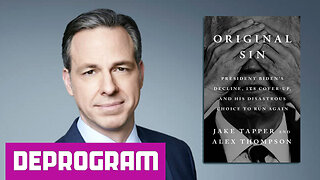Premium Only Content

Why Sudanese people are losing faith in the 'government of hope'
Rather than advancing progress, recent ministerial appointments reflect a rigid adherence to the failed policies of the past.
When former UN official Kamil Idris was sworn in as Sudan’s new prime minister this spring, he became the first person to hold the position in a permanent capacity since Abdalla Hamdok resigned in January 2022 amid ongoing political turmoil. His appointment by Sudanese army chief Abdel Fattah al-Burhan elicited a polarised response. Proponents viewed it as a potential turning point in Sudan’s democratic transition, citing Idris’s political independence, technocratic expertise, and established ties with international organisations. They argued that his non-partisan background would help in navigating Sudan’s complex transitional landscape. Sceptics, meanwhile, questioned the legitimacy of an unelected leader, arguing that his appointment - as opposed to a popular mandate - could constrain his autonomy. Critics have also pointed to the persistence of military influence, suggesting that Idris might function as a civilian proxy, with his authority circumscribed. This perspective underscores broader apprehensions about the deep involvement of the Sudanese Armed Forces (SAF) in politics - a role that contradicts the principle of a military remaining neutral in governance.
https://www.middleeasteye.net/opinion/why-sudanese-people-are-losing-faith-government-hope
Reganelite YouTube Channel: https://www.youtube.com/@REGANELITE?sub_confirmation=1
Join Patreon for Exclusive Content
https://www.patreon.com/Reganelite
All my social media links here:
https://linktr.ee/reganelite
https://discord.gg/xCjFtYdSJp
https://www.instagram.com/reganelite_shorts/
https://www.tiktok.com/@reganelite
https://www.buymeacoffee.com/reganelite
-
 7:18
7:18
Reganelite
23 hours agoDrone footage above Gaza City shows the toll of 2 years of war
2 -
 1:27:43
1:27:43
DeProgramShow
3 months agoEXCLUSIVE on DeProgram: “A Live Interview with Jake Tapper”
11.1K3 -
 1:25:15
1:25:15
The HotSeat
15 hours agoHere's to an Eventful Weekend.....Frog Costumes and Retards.
20K8 -
 LIVE
LIVE
Lofi Girl
2 years agoSynthwave Radio 🌌 - beats to chill/game to
185 watching -
 1:34:23
1:34:23
FreshandFit
14 hours agoThe Simp Economy is Here To Stay
154K13 -
 19:35
19:35
Real Estate
14 days ago $2.41 earnedMargin Debt HITS DANGEROUS NEW LEVEL: Your House WILL BE TAKEN
15.7K4 -
 4:03:48
4:03:48
Alex Zedra
9 hours agoLIVE! Battlefield 6
54.2K2 -
 2:03:15
2:03:15
Inverted World Live
11 hours agoProbe News: 3I Atlas is Spewing Water | Ep. 125
126K27 -
 3:02:07
3:02:07
TimcastIRL
11 hours agoTrump Admin CATCHES Illegal Immigrant POLICE OFFICER, Democrats ARM Illegal In Chicago | Timcast IRL
256K158 -
 4:39:39
4:39:39
SpartakusLIVE
10 hours agoNEW Mode - ZOMBIES || LAST Stream from CREATOR HOUSE
63K7